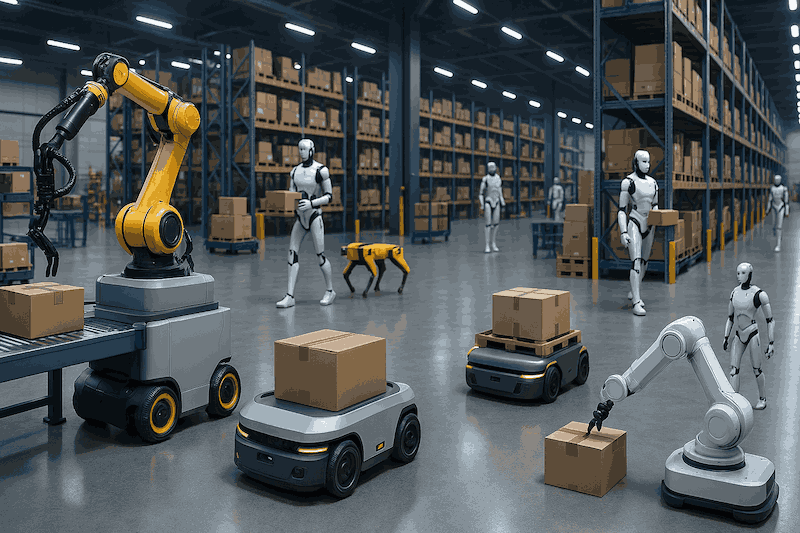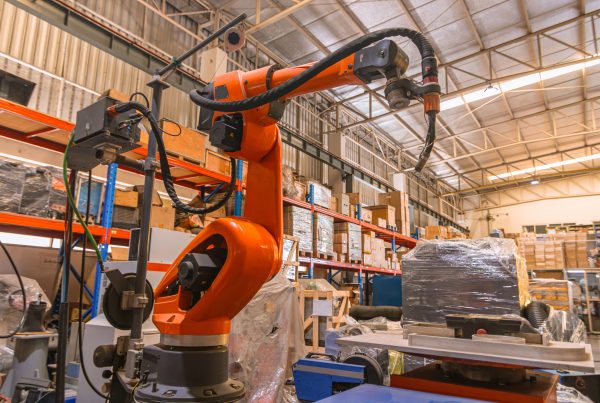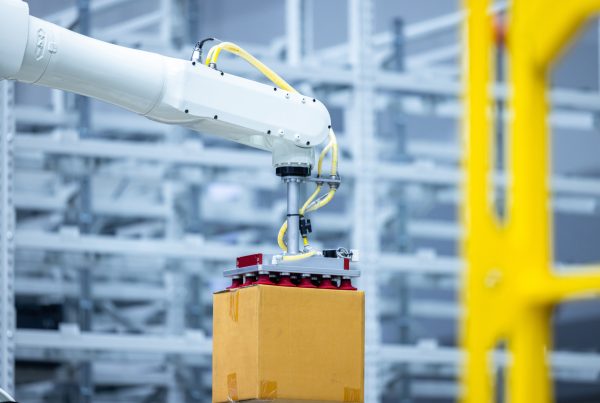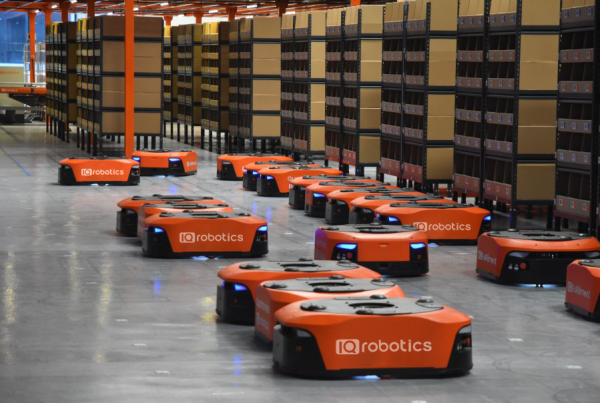Introduction
With the global market embracing technology, the Middle East is quickly becoming a hub of automation innovations. Automation companies are advancing rapidly as governments throughout the region advocate for digital transformation and smart infrastructure. From robotics to industrial process control, the industry is growing at an unprecedented pace, particularly in countries such as the UAE, Saudi Arabia, and Qatar.
Growing Need for Automation in the Middle East
A new priority for many countries in the Middle East is economic diversification. As such, the industry is continually looking to invest in automation to drive productivity, minimize reliance on manual labour, and improve working practices. It has more to do with sectors like oil and gas, logistics, manufacturing, healthcare, and public services, which are automating not just to eliminate the middleman but to reduce operating costs.
What’s Driving the Growth?
What are some key drivers enabling the expansion of Warehouse Automation Solution companies in the region? Government programs, such as Saudi Arabia’s Vision 2030 and the UAE’s Smart Government strategy, are driving the acceleration of such advanced technologies. The region’s young, tech-savvy population, combined with the fastest-growing automation requirements for smart city solutions, is also prompting growth in the automation sector. This hasn’t allowed anyone to pull the plug on the funds.
Technology that is Shaping the Industry
At the heart of this transformation are artificial intelligence (AI), machine learning (ML), the Internet of Things (IoT), and robotics. Automation vendors are integrating this technology to provide smarter, more connected systems. In warehousing and logistics, for example, autonomous mobile robots and AI-enabled inventory systems are being increasingly used. In construction and infrastructure, robotics and 3d printing are accelerating project completion and precision.
Local Dynamics Meets Global Excellence
Among the most positive trends for advancement are the rise of local companies that aren’t just adopting global technologies but also developing their systems tailored to local demands. These companies are investing in research and development, often in collaboration with academia and government. Their methods are not only applicable to the Middle East, but they are also becoming known around the world.
Government and Policy Support
Middle Eastern governments are investing in automation companies as if they were their children. Through initiatives such as incentives, financial options, or establishing technology parks and innovation hubs, they are laying the foundation for a thriving automation environment. Government policies to promote digitization and skilling the labour force are contributing to the narrowing of the talent gap, making growth in automation sustainable and inclusive.
Challenges on the Road Ahead
However, despite its impressive expansion, automation firms in the Middle East are not without their challenges. A shortage of specialized talent, data privacy concerns, and integration work in traditional industries are among the major obstacles. In addition, companies must navigate regulatory systems that may be lagging behind the pace of technological change. Meeting these obstacles head-on will be key to maintaining momentum in 2025 and beyond.
Opportunities in Key Sectors
Logistics and the supply chain remain one of the most promising areas for automation, as more companies are turning to robotics and mobility to streamline warehouse operations. And the area, which straddles the heart of the continent and connects to the rest of the world, is a prime spot for the types of advancements that could ease the handling, storage, and distribution of cargo. Another field that is on the rise to embrace technology is healthcare, with automation being used for improved diagnostics, better patient care, and making hospitals run more efficiently.
Automation in Energy and Utilities
Traditional energy industries are also embracing automation to enhance operations and promote environmental sustainability. The oil and gas industry is embracing everything from automated drilling rigs to predictive maintenance and digital twins in a bid to prepare for the upturn. Power and water utilities are also turning to automation for real-time monitoring, smart metering and load management to create infrastructure that is more reliable and sustainable.
Talent and Education Investment
A key change we have witnessed in the automation landscape is the emphasis on creating a local pool of skilled workers. Now, schools and universities across the Middle East are introducing specialized courses in robotics, AI, and industrial robotic automation. Automation providers are teaming up with colleges and universities to develop curricula, internships, and research projects to address the skill shortages. These are essential measures to support long-term growth and sustainability in the industry.
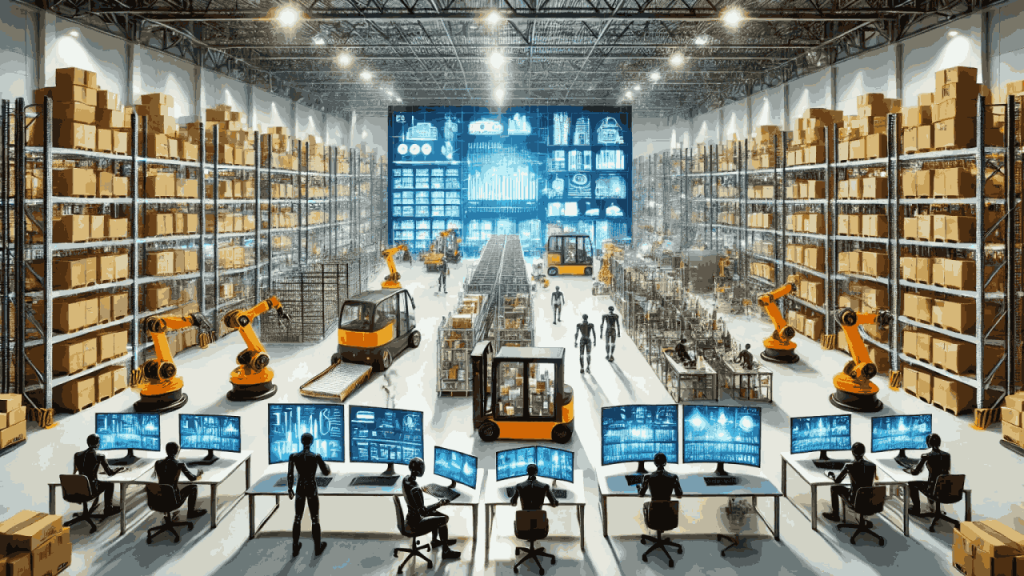
Startups Automating Chugging Along
Middle East startups working on automation technologies are expected to attract more investment, providing adaptable solutions tailored to specific needs. These fledgling enterprises are among the first to try out and implement advances such as robotic process automation, smart factory systems , and AI-powered business solutions. With the incubators, seed funding, and government-funded tech initiatives, these startups are expanding rapidly and challenging traditional markets.
Sustainability By Smart Automation
You see, automation isn’t only for efficiency, but a critical enabler of sustainability in the Middle East. With their waste reduction, energy-saving, and smart use of resources, automated systems complement the region’s environmental objectives. Sustainable buildings, waste management, and energy optimization are becoming increasingly automated – this presents a new opportunity for smart cities and companies to comply with global sustainability standards.
AI-based Decision Making in Business Operations
Every organisation in the Middle East is starting to embrace AI-led automation to help support smarter and faster decision-making. Whether predicting market trends or organizing complex supply chains, AI is automating workflows and enhancing strategic thinking. Artificial intelligence is the technology that allows tools to process large amounts of data in real-time. Automation enables customers to make data-informed decisions.
Intelligent infrastructure and urban planning
With smart cities booming in the Middle East, automation firms are becoming increasingly active in shaping the design and operation of urban areas. Now, aspects such as traffic management, energy usage, waste disposal, and public safety are all being optimized through automated, integrated systems. This marriage of technology and infrastructure is not just transforming urban life; it is also making cities more adaptable and resilient in response to rapid population growth.
Cyber Security and Automation Integration
As businesses across various industries continue to adopt digital solutions, cybersecurity is now an integral part of every automation deployment. Automation solution providers are incorporating strong security layers into their offerings to prevent data breaches and cyber threats. Increasingly, the demand for secure automation is driving organizations to leapfrog the current state of affairs by leveraging automation as part of a real-time threat detection and response approach.
Cloud and Edge Computing positions
The stage is set for the Middle East to take automation to the next level with cloud and edge computing technologies. Interconnection for Real-time Processing capability at the edge, in addition to the speed and reliability that place-based and industrial-based edge computing offers for automation system applications. In the cloud, cloud infrastructure provides the scalability and flexibility that automation companies require to deploy large systems across multiple locations, in a process optimized for low latency and energy efficiency.
Cross-Industry Partnerships Fostering Innovation
The region’s boom in automation is particularly notable, as evidenced by the rise in collaborations between industries. These cross-industry collaborations, whether they involve health-care providers partnering with tech companies or logistics firms working with automation startups, are driving the pace of innovation. Such collaboration, by sharing expertise, infrastructure, and resources, is creating end-to-end, holistic automation ecosystems that offer fully integrated solutions.
Automation Growth Driven by Government Measures
Middle East leadership is changing the face of automation.. Governments around the Middle East are shaping the future of automation with ambitious plans and a clear vision. Initiatives, such as smart city blueprints, digital transformation strategies, and industrial renewal strategies, are specifically driving demand for robotic automation solutions. Additionally, public-private partnership innovation hubs and regulatory reforms are providing an enabling environment in which automation companies can flourish, invest, and scale quickly throughout the region.
What to Expect in 2025: The pandemic will not have been forgotten.
By 2025, the automation sector is anticipated to be even more formidable. The bright outlook . . . In summary, when one looks at the powerful trend-propelled companies over a time horizon too long for the stock market to entirely ignore, investing in t, them could make a lot of sense, even if they’ve some catching up to do. Attention will likely shift from dumb automation to smart, self-learning intelligent systems that optimize and adapt.
Conclusion
The Middle East is increasingly turning out to be a cradle for transformative potential. With heavy government support, a surge of tech-driven demand, and an expanding pool of Talent, automation companies are poised to redefine industries throughout the region. The focus as we progress further into 2025 is likely to be on how these companies scale, adjust, and continue to take the lead toward a more streamlined, automated future.
Visit our Instagram to get more updates and tips!


